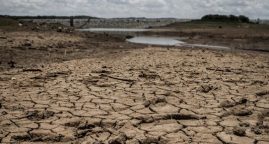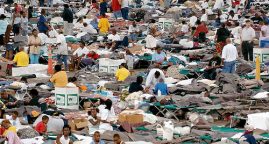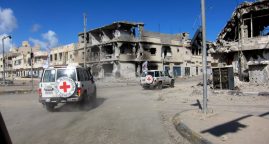EU foreign policy should build on diplomacy, development and defence, say MEPs
Article published on European Parliament website on 12/14/2016
Diplomacy, development and defence should be the pillars of EU foreign policy, say MEPs in a resolution voted on 2016 Wednesday 14th december.
They advocate a more realistic strategy on Russia and a “less for less” policy towards countries that try to throw democracy into reverse. MEPs also call on member states to show more unity and trust, and to speak with one voice, so as to make the EU a global player.
Rapporteur and Foreign Affairs Committee chair Elmar Brok (EPP, DE) said in a debate on Tuesday that “Seventy percent of European citizens agree that there should be more Europe on one issue – common foreign and security policy. This is sometimes blocked in the capitals by the system, but not by citizens. We need more diplomacy, development and military capacity for the CFSP […] and to ensure that people have a feeling of safety and security.“
In an annual resolution reviewing key EU foreign policy choices, MEPs stress that the EU is ringed by an “arc of instability” stretching from an aggressive Russia to proxy wars in the Middle East and North Africa. This has “serious consequences for the security and well-being of European citizens”, as it fuels terrorism, massive refugee flows and disinformation campaigns, says the text.
Noting that “the EU is one of the greatest achievements in European history”, MEPs suggest that European cooperation in foreign and security policy could yield the most value added. They call on member states to show unity, trust one another and speak with one voice, in order to make EU a strong global player.
More realistic strategy on Russia
MEP stress that since Europe’s security architecture has been severely damaged by Russia’s military intervention in Crimea and eastern Ukraine, there is a need to define “a more realistic strategy for EU’s relations with Russia.”
They suggest investing more effort in dialogue with Russia’s civil society, whilst maintaining diplomatic, political and economic pressure on the Russian government to end its aggression. “Sanctions have proven to be an effective means for deterring further Russian aggression in Ukraine,” say MEPs, asking the EU to keep open the possibility of imposing further sanctions should Russia continue to violate international law.
Defend and deter
MEPs note “since power politics is again dominating international relations, defence and deterrence capabilities are critical” to EU leverage in diplomatic talks. They therefore call for more spending on defence, collective funds for EU missions, measures to make the EU’s rapid reaction force (Battlegroup) more usable and also joint purchasing of defence materials. MEPs also call for more EU and NATO cooperation on cybersecurity, migration, strategic communication and the response to hybrid threats.
Less for less
The resolution says that the “European Neighbourhood Instrument has not lived up to its goals”, as the “more for more” policy has failed to win over the EU’s neighbours. Instead, the EU should switch to a “less for less” policy “with regard to those countries which go into reverse in terms of governance, democracy and human rights.”
The resolution was adopted by 433 votes to 174 and 93 abstentions.
Related Articles
A climate in crisis
04/27/2017. How climate change is making drought and humanitarian disaster worse in East Africa.
Participants at UN conference examine human mobility in an era of climate change
11/08/2017. The number of disaster displacements amounted to 25.3 million, according to figures released by the Norwegian Refugee Council.
David Horobin: “In today’s world a major crisis cannot be handled by one individual.”
10/05/2017. Recently appointed head of the GCSP Crisis Management Cluster, David Horobin has a lifetime of experience on the frontlines of complex emergencies.





